Montessori Approach
|
Practical Life Area
|
| This area provides the link between home and school. The exercises for Practical Life are designed to teach the child to function in his home environment by teaching him how to cope with things around him while at the same time developing concentration, independence, cognitive order, self discipline and fine motor skills in preparation for writing. |
|
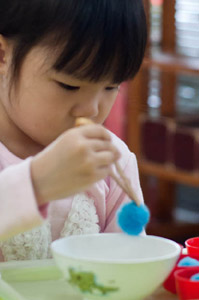 |
|
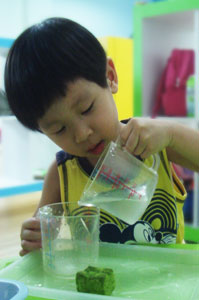 |
|
 |
|
Sensorial Area
|
| Sensorial exercises are concerned with the development and refinement of the five senses, thereby sharpening the child’s intellect and control of movement, and preparing him for more advanced exercises. Sensorial materials provide direct and indirect experience in the field of mathematics, reading and science. |
|
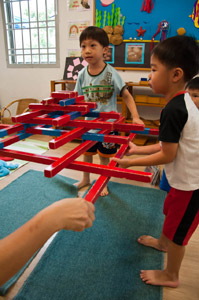 |
|
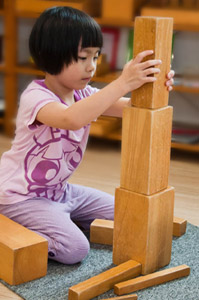 |
|
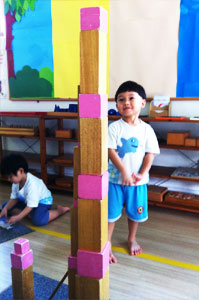 |
|
Mathematics Area
|
| In the Montessori classroom, Mathematics are presented in a fun and interesting way by using concrete materials and help children to develop concrete to abstract concept through manipulating materials. Children experience the thrill of discovery when using these materials to perform mathematical operations. The Montessori approach to mathematics is logical, clear and very effective. |
|
 |
|
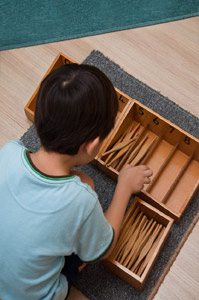 |
|
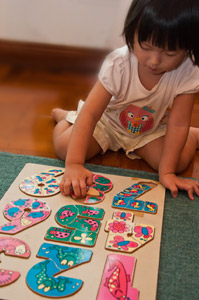 |
|
Language Area
|
| The sensitive period for Language learning occurs between 2 to 7 years old. In our classroom we encourage and emphasize speaking in English as the foundation of linguistic expressions. The child is introduced to phonetic sounds, begins reading simple words and progresses to sentence building and composition. Reading and writing skills are often acquired seemingly and spontaneously. |
|
 |
|
 |
|
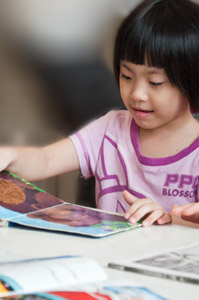 |
|
Culture Studies Area
|
| In this area, children acquire more detailed knowledge in zoology, botany, history, health and practical sciences. They are also made aware of festival and special events. With the multi racial and cultural community, this area provides an environment that makes these topics come alive. |
|
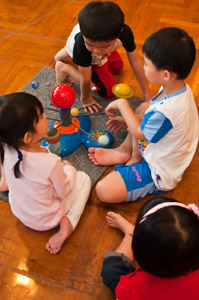 |
|
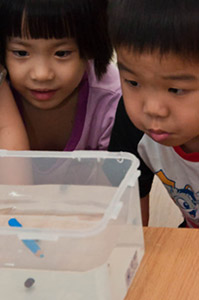 |
|
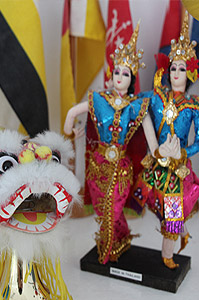 |
|